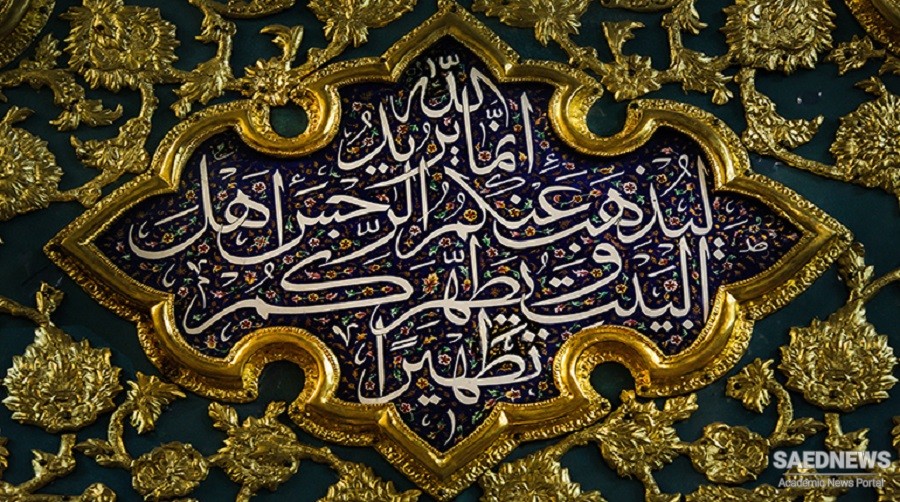The importance of the Ahl al-Bayt is expressed in another verse in which the Prophet is instructed, ‘Say: I ask you for no reward, save love of the near of kin’ (42: 23). According to several of the most important commentators of the Quran, the referent of ‘near of kin’ in this verse is the Prophet’s Ahl al-Bayt.19 Love of the Prophet’s family is thus explicitly called for by the revelation, without this excluding the more general import of the verse, love of all those with whom one shares close kinship ties. The extent to which the Prophet’s family are to be revered by all Muslims is also indicated in the fact that blessings are to be invoked upon his progeny, as part of the blessings to be invoked upon him. The Quran instructs the believers: ‘Truly, God and His angels bless the Prophet. O ye who believe, bless him and greet him with peace’ (33: 56). Upon the revelation of this verse, the Prophet was asked how one was to perform this blessing, and he replied that the blessings were to be invoked upon him and his āl as follows: ‘O God, bless Muhammad and the progeny of Muhammad, as Thou hast blessed Abraham and the progeny of Abraham. Truly, Thou art the Praised, the Glorious …’ The importance of this blessing, to be recited during the canonical prayer, together with the necessity of loving the Prophet’s family, is well brought out in the following lines of a poem by Imam al-Shafei, founder of one of the four schools of Sunni jurisprudence: Loving you, O family of the household of the Prophet of God, is an obligation (fard) from God in the Quran which He revealed; Sufficient to show the grandeur of your dignity is that one who blesses you not—no prayer has he (Source: Justice and Rememberance).


 Who Is Allah the Lord of Islamic Religion and All Worlds?
Who Is Allah the Lord of Islamic Religion and All Worlds?














































